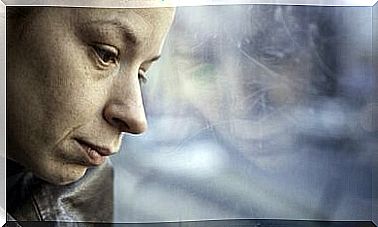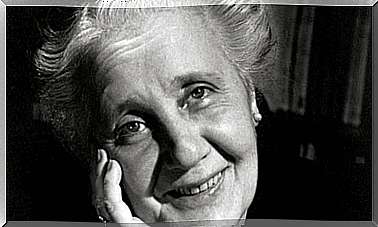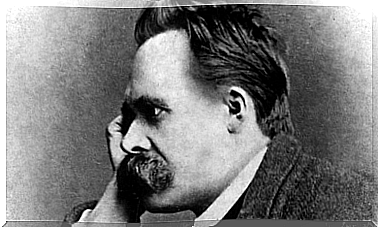We Have To Move Forward With A Healthy Past

Moving forward in life means growing, developing potential, designing personal, professional and social projects and realizing them. However, you realize more than once that you can’t make that breakthrough, that the past is still present, or that everything happens at a very slow pace despite putting a lot of effort into it. What’s happening?
It is normal for people to look for the causes of stagnation in the external circumstances surrounding the present. Thus, explanations will appear that relate to the deficiencies of the environment and the responsibilities are assigned to them. While the incidence of these factors should not be underestimated, the fact is that, essentially, advancement always depends on us.
Many times we simply don’t move forward because there is something in the past that is strong enough to stunt our personal evolution. It is a mistake to think that the past is behind us and no longer counts. In fact, it’s exactly the opposite: of all times in life, the past is the most decisive, which is why it’s so important to have a healthy past.
The past is always happening…

It’s true: the past is always happening. In the work we do so efficiently at the office today is also the boy who has learned to earn gold stars for every task he completes. In this person who today falls madly in love is also the child who remained attentive to his mother’s gestures of approval and disapproval.
We are essentially past, although we have to act in the present and according to what we imagine will happen in the future. Therefore, the past is, in reality, this factor that drives or appears as an obstacle to moving forward in life.
Childhood is the decisive stage of our existence. It is the original time of our being, the time in which we absorb and process a posture towards ourselves and the world. The other times in life are adaptations and readjustments from that past.
There is a saying that “the best gift that a human being can give to another is a happy childhood” . Unfortunately, the opposite is also true: the greatest damage to one’s existence stems from an unhappy childhood. These are wounds that can take a lifetime to heal, or may never heal at all.
Everything we’ve said before doesn’t mean that once the past has occurred, there’s nothing more to be done. In fact, each of us can take these lived experiences and convert them into an enriching or limiting factor. From traumatic pasts, wonderful works of art and thoughts were born, as well as from happy childhoods, unforgettable people emerge.
The past provides a raw material that, in essence, is immutable. But this raw material, as its name implies, is just a base material. What is built with it depends as much on the substance itself as on the work of those who mold it.
Learning to analyze what happened to have a healthy past

No one escapes the hard, difficult or unfair experiences of life, but the hard, difficult and unfair of these experiences can be enhanced or minimized, depending on how the person processes them. In any case, the worst of all alternatives is to pretend to refuse a side, in order to ignore the pain and act as if nothing had happened.
This denial of the painful past only leads to increasingly difficult confusions to resolve. If someone has suffered, for example, from the indifference or rejection of their parents and tries to ignore all the pain that this generates, they will probably become someone apparently insensitive, with difficulty in creating intimate bonds with others, but who breaks into tears watching a commercial.
You will feel great dissatisfaction with yourself and therefore with the people around you. You are likely to be overly demanding and, at the same time, oversensitive to criticism. You will find it difficult to objectively assess the value of your stocks and, in general, you will feel either much better or much worse than others, never the same.
This set of attitudes and emotions configure a whole life, in which the predominant note will be conflict and dissatisfaction. However, all of this does not necessarily stem from that indifference or rejection you were subjected to as a vulnerable child, but rather from the refusal to review these experiences to make constructive sense of them. From the refusal to experience all traces of pain that leaves a similar situation.
It’s not about needing a graduate degree, a better partner, more obedient kids, or a prettier home. The answer to stagnation is in the past, in those loose ends that we haven’t finished tying, in those pains that never healed.
Purging the past is a task that we must all do at some point in our lives, especially when we realize that our efforts are not rewarded with encouraging results. It’s not that we have “something wrong” or something deficient. It’s just that we may not have understood that, in order to move forward, we need a healthy past.

Images courtesy of Anna Dittman.








